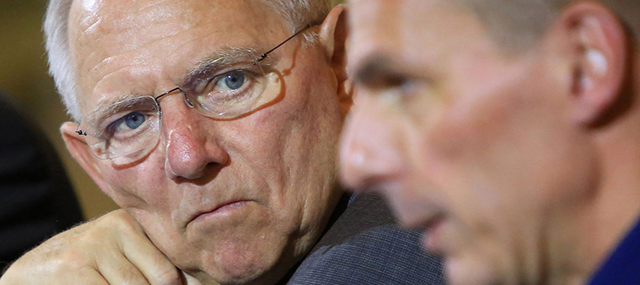Athens gambles on the huge damage such a scenario would inflict on the Eurozone as a whole, taking for granted its partners will cave in as the deadline approaches. Both sides wage a dangerous tug-of-war with the potential of leading to utter disaster.
While Greece buys time for brokering an agreement it can sell home at moderate political cost, the Euro-group is tightening its stance in an attempt at breaking down Athens’s resilience. The current debate focuses exclusively on how many days the Greek Treasury could cope with pending commitments.
Yet, this struggle is bringing the Greek economy to its knees. As it falls again into recession, any rescue plan might prove unable to save the country’s growing insolvency. The banking system seems broke, crippled by a massive run on deposits. Trade and output are on the brink of collapse.
Europe cannot endure yet another confidence crisis. It is bound to help Greece so long its government comes to terms on a minimum set of sensible measures for increasing economic performance. Mr Tsipras should not lose a single minute in defusing the current open clash with his partners. While he has enjoyed broad support in his effort to preserve national pride in discussions with creditors, people at home are becoming increasingly anxious at the prospect the country might leave the Euro and blow to pieces.
It is time to reach an agreement. Even if the Greek public finances can hold for an extra month, redressing the economic plight stands as an immediate must. Otherwise, the bill would increase beyond control.






Be the first to comment on "Gambling on Greece"